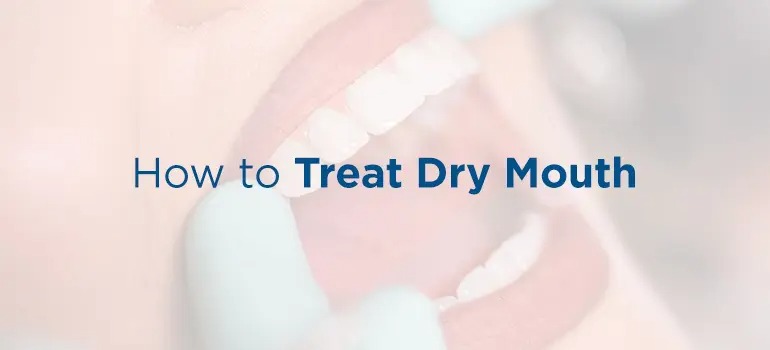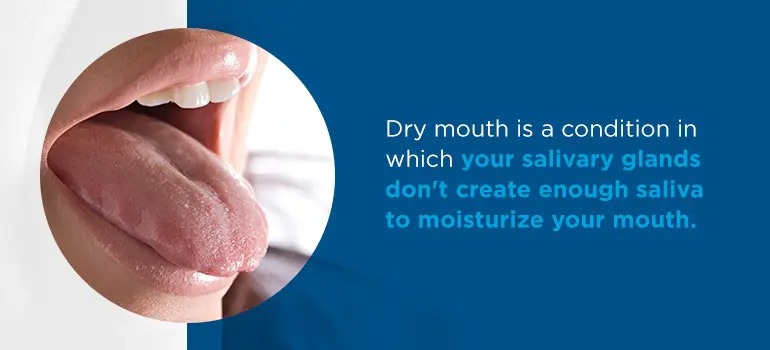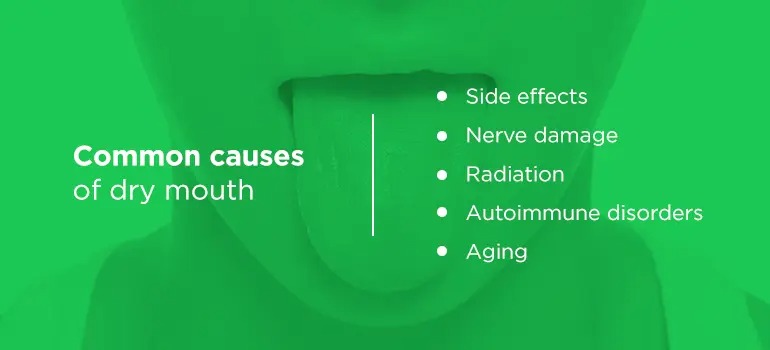
Believe it or not, saliva is crucial for fighting bacteria and helping us taste our favorite foods. But sometimes a lack of saliva results in xerostomia, more commonly known as dry mouth. Sometimes dry mouth is unavoidable, like after specific medical treatments or surgeries, but most of the time, it’s treatable — and, more importantly, preventable.
Having an experienced dentist on your team is one of the best ways to ensure a healthy mouth, and the doctors and hygienists at AZ Family Dental work toward helping clients live their healthiest lives. That includes advice and assistance dealing with oral issues like dry mouth.

Dry mouth is a condition in which your salivary glands don’t create enough saliva to moisturize your mouth. It’s not a fatal condition, but it can be a nuisance, and its symptoms can be frustrating to deal with.
There are several reasons a person could get dry mouth, many of which include side effects of other conditions. However, dry mouth can also occur naturally, like if you’re nervous or stressed. Even mental illnesses, like anxiety, which can cause shortness of breath, can lead to dry mouth. This issue is usually temporary, but prolonged dry mouth can be a reality for many people, such as those who live with hormonal disorders or poorly managed diabetes.
Another common cause of dry mouth is specific lifestyle choices, especially those that encourage dehydration, like breathing through the mouth instead of the nose. Indulging in vices like smoking or chewing tobacco, doing recreational or hard drugs, and drinking alcohol can all lead to a person developing dry mouth.

Often, dry mouth results from existing medical conditions, medications, or medical treatments. However, several lifestyle choices can lead to dry mouth, as well. Some of the most common causes of dry mouth include the following.
Additional factors, like the surgical removal of the salivary glands or botulism poisoning, will also lead to dry mouth, but tend to be less prevalent.
Dry mouth feels like there is no moisture in your mouth, making it difficult to chew food, swallow, and even talk. It can negatively affect your day-to-day life, so it’s essential to know the symptoms of dry mouth and what may be causing it.
Common symptoms of dry mouth include:
If you’ve ever experienced dry mouth, you’ll understand how frustrating it can be. Luckily, there are many home remedies to relieve dry mouth, including:
Avoiding drinking alcohol — or using products with alcohol in them, such as some mouthwashes — and smoking or chewing tobacco is also a smart idea for how to treat dry mouth at home. It’s best to see your doctor or dentist for more severe cases that home remedies can’t solve. They will be able to tell you how to treat dry mouth using specific solutions based on the cause of your dry mouth, such as:
When it comes to how to relieve dry mouth, there are many options out there. But, prevention is always better than cure, and there are many simple ways to ensure oral health and alleviate this condition. The most common ways to prevent dry mouth that you can incorporate into your everyday life include:
If you’re wondering how to prevent dry mouth, oral hygiene can go a long way, especially since dry mouth can put you at risk of tooth decay. That’s why it’s vital to maintain good oral hygiene habits and visit your dentist regularly for checkups and cleanings.
Regular visits to the dentist aren’t only for cleaning and filling cavities. They’re also a chance for your dental professional to spot and repair any potential issues before they become riskier and more complicated. If you’ve been experiencing dry mouth, don’t write it off as a temporary inconvenience. We offer dental exams for the entire family, so you can rest assured that your oral health is at its best.
The professionals at AZ Family Dental have patients’ well-being top of mind, and our state-of-the-art technology and family-friendly staff strive to help you achieve and maintain optimal oral health. Book a dental exam for you and your whole family by filling out our online contact form or by calling 623-777-2037.